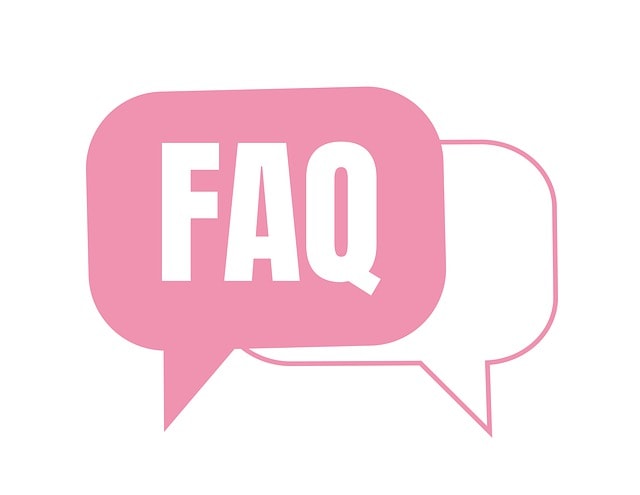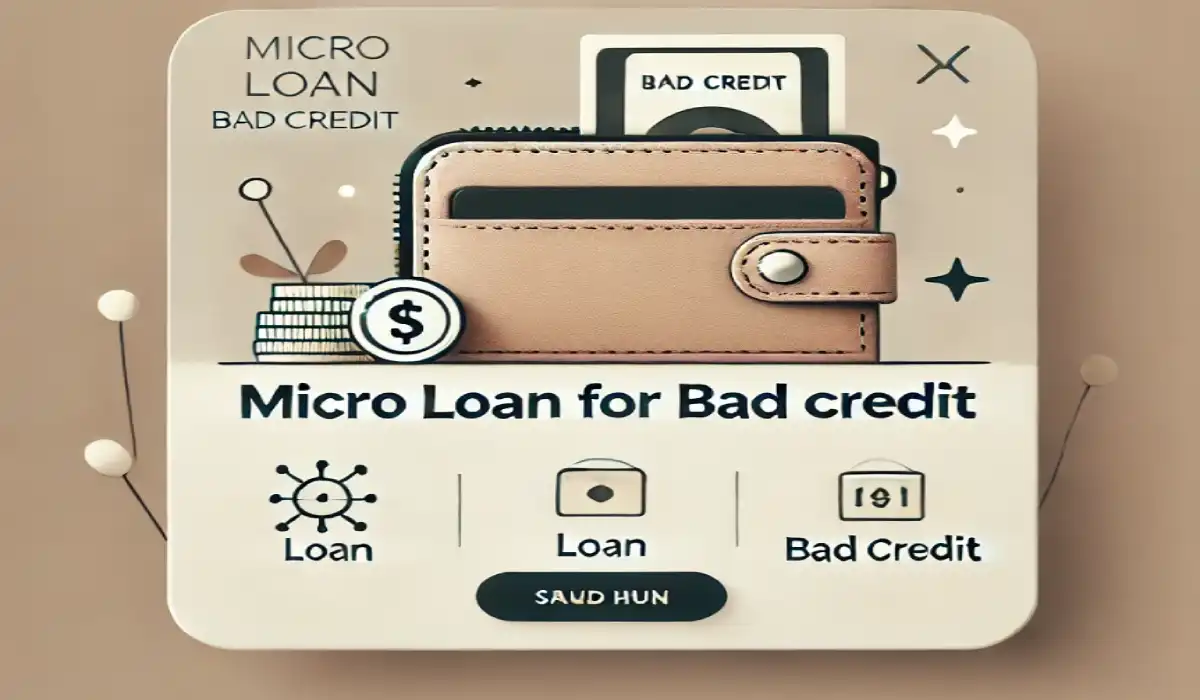Microloans can be a lifeline for small business owners and entrepreneurs, especially those who may struggle with traditional loans due to credit issues. A microloan is often the first step for people who are trying to start or grow a business, even with a low credit score. This article explores what microloans are, their benefits, eligibility criteria, and alternatives for individuals facing credit challenges. Learn how to find a Micro Loan for Bad Credit to support your business. Explore eligibility criteria, application steps, and alternative funding options to help you succeed, even with credit challenges.
What is a Microloan?
A microloan is a small-dollar loan designed to support small businesses. These loans are usually between $500 and $50,000 and are offered by various sources, such as the U.S. Small Business Administration (SBA), community organizations, nonprofits, and online peer-to-peer lenders. Microloans help small businesses with costs like buying inventory, paying employees, or covering daily business expenses.
Microloans are often given to groups that might not have easy access to regular business loans, like women, veterans, or people from low-income communities. Because these loans focus on providing support to small businesses, they can be a helpful starting point for those who might not qualify for larger, traditional bank or credit union loans.
Microloans are designed to make it easier for business owners to get the funds they need to grow without needing perfect credit. Additionally, microloan programs may provide additional services, such as entrepreneurship mentoring or business classes, that are not typically offered at a traditional bank loan, or credit union.

Eligibility Criteria and Minimum Credit Score
When looking at microloans, one of the most important things to consider is eligibility. Fortunately, many microloans come with flexible criteria, which can make them more accessible to eligible borrowers who have faced financial challenges. Unlike most regular business loans, some microloans do not have a minimum credit score requirement. This can be helpful for small business owners who have low credit scores or no credit history at all.
Related: Private Business Finance Loans: A Complete Guide
For instance, the SBA Microloan Program does not require a minimum personal credit score or business credit score. Instead, SBA microloan lenders focus on the borrower’s business plan, character, and overall business goals. However, even though there is no strict credit score requirement, having a higher credit score can sometimes make the loan approval process easier and may lead to better loan terms.
Each microlender may have different requirements, so it’s important to check what each lender needs before applying. Some microlenders may still look at your financial records, income, and other factors. Preparing financial documents and keeping a positive financial history can help you increase your chances of getting approved for a microloan.
Types of Microloans
Microloans can be categorized into two main types: SBA Microloans and Alternative Microloans.
SBA Microloans
SBA Microloans are a type of microloan offered by the Small Business Administration (SBA). These loans are designed to provide small businesses with access to capital that may not be available through traditional bank loans. SBA Microloans are typically offered through specially designated intermediary lenders, such as non-profit organizations and community development financial institutions. The SBA Microloan program provides loans of up to $50,000, with repayment terms of up to six years. The interest rates on SBA Microloans are negotiated between the intermediary lender and the borrower, but are typically between 8% and 13%.
Alternative Microloans
Alternative Microloans are offered by non-traditional lenders, such as online lenders and peer-to-peer lending platforms. These loans are often designed to provide small businesses with quick access to capital, and may have more flexible repayment terms than traditional bank loans. Alternative Microloans may have higher the average interest rate, and rates than SBA Microloans, but can be a good option for small businesses that need access to capital quickly.

Applying for a Microloan
The application process for microloans can vary depending on the lender, but it generally involves filling out a form and submitting some documents. Many microlenders allow borrowers to apply for small loans online, which can make the process faster and more convenient.
To apply for personal loan, you’ll typically need to provide basic information about yourself and your business, such as the type of business you own, your business goals, and how you plan to use the loan funds. Along with the first loan application, you may also need to submit financial records, such as profit and loss statements, balance sheets, and business tax returns.
Related: Subprime Business Lenders: Unlock Growth for Bad Credit
Improving your personal credit score can also help you access better terms, as some lenders with lower credit score will consider it when reviewing applications. Organizing your own business financial statements and records ahead of time can make the process smoother. Being prepared can show the lender that you are serious about your business and can handle the responsibility of a loan.
Alternatives to Traditional Business Loans
For business owners who may not qualify for small business loans or microloans, there are alternative funding options to explore. Some of these options can help credit-challenged borrowers get the support they need to grow their businesses.

- Amount = $5,000 to $500,000
- Loan Term = 4 to 24 months
- Interest Rate = 1.11%
4.8
editorial team. We score based on factors
that are helpful for consumers, such as
how it affects credit scores, the rates and
fees charged, the customer experience,
and responsible lending practices.
- Min. Amount = $10,000
- Max Amount = $500,000
- APR = Factor rate starting at 1.11%
4.8
editorial team. We score based on factors
that are helpful for consumers, such as
how it affects credit scores, the rates and
fees charged, the customer experience,
and responsible lending practices.
Best for large business loans

- Loan Amount = $25,000 - $3,000,000
- $10,000 in Monthly Rev
- No minimum credit score requirement
4.9
editorial team. We score based on factors
that are helpful for consumers, such as
how it affects credit scores, the rates and
fees charged, the customer experience,
and responsible lending practices.
Best for large business loans

- Min Amount = $5,000 - 1,500,000
- APR range Not disclosed
- Minimum Credit Score 570
4.7
editorial team. We score based on factors
that are helpful for consumers, such as
how it affects credit scores, the rates and
fees charged, the customer experience,
and responsible lending practices.
Best for Small business loans

- Min Credit Score = 620
- Loan Amount = $10K-$5M
- Term = 6 months - 10 years
- APR = Variable
4.8
editorial team. We score based on factors
that are helpful for consumers, such as
how it affects credit scores, the rates and
fees charged, the customer experience,
and responsible lending practices.

- Check Your Eligibility
- Get $10K to $2M
- 24/7 Support
4.8
editorial team. We score based on factors
that are helpful for consumers, such as
how it affects credit scores, the rates and
fees charged, the customer experience,
and responsible lending practices.

- Amount = $10,000 to $1,000,000
- Factor Rate = Starting at 1.24
- Term = 2 to 12 months
4.7
editorial team. We score based on factors
that are helpful for consumers, such as
how it affects credit scores, the rates and
fees charged, the customer experience,
and responsible lending practices.
SBA 7(a) and 504 Loans
SBA loans, including SBA 7(a) and SBA 504 loans, are both backed by the government and can be used for larger business expenses. ( SBA loan and 7(a) loans are popular because they can be used for a wide range of business purposes, from equipment purchases to working capital.
SBA 504 loans, on the other hand, are more commonly used for real estate and equipment. While these loans usually have stricter requirements than microloans, they can be a good choice for businesses with larger funding needs.
Small Business Credit Cards and Lines of Credit
Another option is using a small business credit card or a small business loan or a business line of of credit. These types of credit allow you to access funds as needed, without taking out a large lump sum. Business credit cards and lines of credit are often easier to qualify for and can be good options for covering day-to-day expenses. However, they may come with higher interest rates than traditional loans, so it’s essential to manage them carefully.
Online Lenders and Peer-to-Peer Lenders
Online lenders have become popular for business owners who may not have strong credit. Some online lenders are more flexible with credit score requirements, sometimes accepting credit scores as low as 500. Peer-to-peer lenders connect borrowers with individual investors and can be a good alternative for people who have difficulty qualifying for traditional business loans. However, it’s important to review the terms of online personal loans very carefully to ensure that the interest rates and fees are manageable. The Farm Service Agency, for example, offers microloans designed to assist smaller farms and nontraditional operators.
Invoice Factoring
If your business deals with customers on credit, you may consider invoice factoring. With invoice factoring, a factoring company gives you cash based on your outstanding invoices, usually loan amounts of up to 85% of the invoice value. This can be helpful for businesses with unpaid invoices that need immediate cash flow. Keep in mind, however, that the factoring company may take a percentage of monthly payment on each invoice as a fee.

Managing Your Microloan
Once you’ve been approved for a microloan, it’s important to manage it responsibly. Microloans can provide essential support for small businesses, but they may not be the best choice for all situations. Make sure to weigh the pros and cons of a microloan before using it as a funding solution.
Take time to review the lender’s terms and conditions carefully. Each lender may have different terms regarding loan amounts, interest rates, repayment schedules, and fees, so understanding these details is crucial to avoid surprises later. You can also use a business loan calculator to help you the loan agreement and estimate the total amount you will pay back, including interest.
Using the funds wisely can help you make the most of your loan. Focus on using the microloan to cover business needs that will drive growth, such as purchasing essential supplies, expanding your marketing, or hiring employees. Managing the loan effectively can improve your business’s success and help you build a stronger credit profile, which may make it easier to qualify for other loans in the future.
What to Do if You’re Denied a Microloan
Getting denied by online lender for a microloan can be disappointing, but it doesn’t mean you’re out of options. If one lender turns you down, consider exploring other lenders who may have different eligibility requirements for a bad credit loan.
You can also look at different types of business financing too, such as business credit cards, merchant cash advances, or invoice financing. Although these options can be more expensive than traditional loans, they can provide quick access to cash when needed. Keep in mind that the cost of these loans can vary, so it’s essential to compare your options.
Another step you can take is to work on improving your credit score or business credentials. By focusing on paying bills on time, reducing debt, your business income, and building your credit report with a strong business plan, you may be able to reapply for a microloan in the future with better results.

Frequently Asked Questions
What is the minimum credit score required for a microloan?
The minimum credit score required for a microloan varies depending on the lender, but is typically around 500-600.
Can I get a microloan with bad credit?
Yes, it is possible to get a microloan with bad or good credit score. However, you may need to provide collateral or a personal guarantee to secure the full loan amount.
How long does it take to get approved for a microloan?
The approval process for a microloan can vary depending on the lender, but is typically quick, with some lenders offering same-day approval.
Can I use a microloan to refinance debt?
Yes, microloans can be used to refinance debt, but most lenders may have restrictions on the type of debt ownership loans that can be refinanced.
Are microloans available to all small business owners?
Microloans are available to small business owners who meet the eligibility requirements of the lender. These requirements may include a minimum credit score, business revenue, working capital, minimum loan amount and time in business.
Additional Resources
Small Business Administration (SBA): The SBA offers a variety of resources for small business owners, including information on microloans and other types of financing.
National Association for the Self-Employed (NASE): The NASE offers resources and support for self-employed individuals and small business owners, including information on microloans business insurance and other types of financing.
Small Business Development Centers (SBDCs): SBDCs are hosted by universities and colleges, and provide free business consulting and low-cost business training, to small business owners. They may also offer information on microloans and other types of financing.
Microloans offer a valuable resource for business owners with limited or poor credit. By understanding what microloans are, how to qualify, and exploring other funding options, you can make informed decisions to support your business. While there are several paths to funding, it’s essential to weigh the benefits and costs of each option.

- Amount = $5,000 to $500,000
- Loan Term = 4 to 24 months
- Interest Rate = 1.11%
4.8
editorial team. We score based on factors
that are helpful for consumers, such as
how it affects credit scores, the rates and
fees charged, the customer experience,
and responsible lending practices.
- Min. Amount = $10,000
- Max Amount = $500,000
- APR = Factor rate starting at 1.11%
4.8
editorial team. We score based on factors
that are helpful for consumers, such as
how it affects credit scores, the rates and
fees charged, the customer experience,
and responsible lending practices.
Best for large business loans

- Loan Amount = $25,000 - $3,000,000
- $10,000 in Monthly Rev
- No minimum credit score requirement
4.9
editorial team. We score based on factors
that are helpful for consumers, such as
how it affects credit scores, the rates and
fees charged, the customer experience,
and responsible lending practices.
Best for large business loans

- Min Amount = $5,000 - 1,500,000
- APR range Not disclosed
- Minimum Credit Score 570
4.7
editorial team. We score based on factors
that are helpful for consumers, such as
how it affects credit scores, the rates and
fees charged, the customer experience,
and responsible lending practices.
Best for Small business loans

- Min Credit Score = 620
- Loan Amount = $10K-$5M
- Term = 6 months - 10 years
- APR = Variable
4.8
editorial team. We score based on factors
that are helpful for consumers, such as
how it affects credit scores, the rates and
fees charged, the customer experience,
and responsible lending practices.

- Check Your Eligibility
- Get $10K to $2M
- 24/7 Support
4.8
editorial team. We score based on factors
that are helpful for consumers, such as
how it affects credit scores, the rates and
fees charged, the customer experience,
and responsible lending practices.

- Amount = $10,000 to $1,000,000
- Factor Rate = Starting at 1.24
- Term = 2 to 12 months
4.7
editorial team. We score based on factors
that are helpful for consumers, such as
how it affects credit scores, the rates and
fees charged, the customer experience,
and responsible lending practices.
With careful planning and the right financial tools, you can find a loan option that supports your business goals, even if you’re dealing with credit challenges. Remember, building a good business credit profile over time can help you access more financing options, lower credit scores and better loan terms, so focus on steady growth and responsible borrowing practices.


 Read More
Read More 




